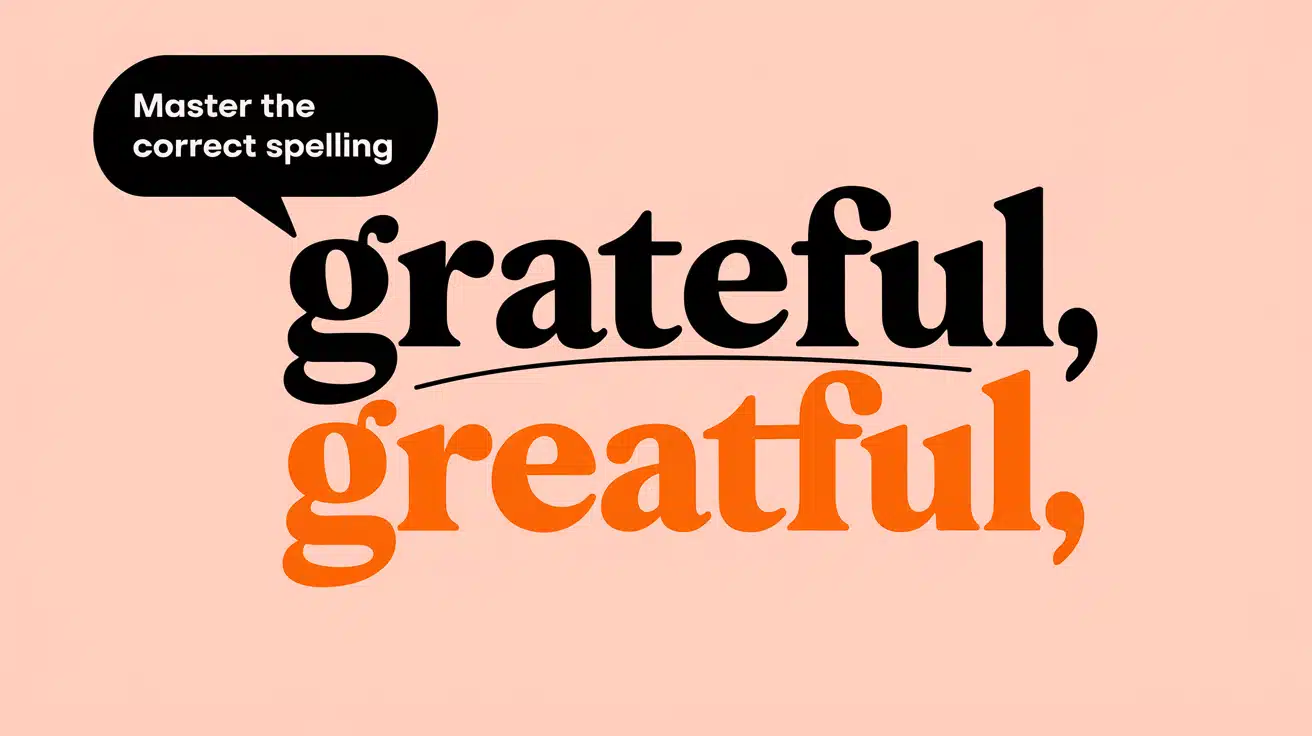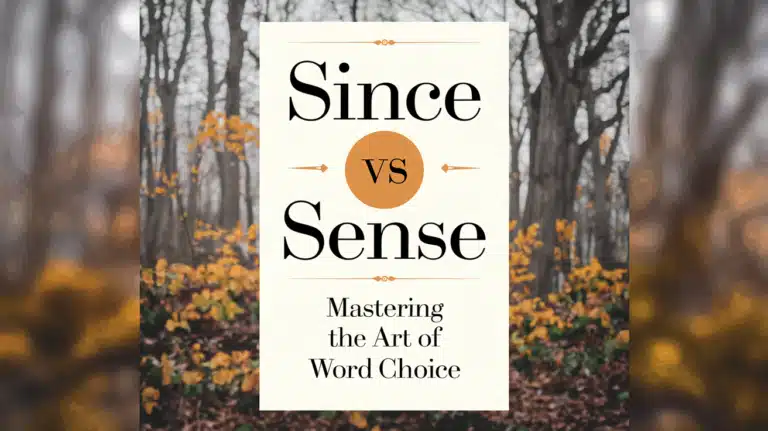Grateful vs Greatful: Mastering the Art of Spelling Gratitude
In a world where expressing appreciation is more important than ever, knowing how to spell “grateful” correctly can make all the difference. Let’s dive into this powerful word and unravel the mystery behind its spelling.
The Origins of Gratitude: A Brief History
The word “grateful” has a rich history that spans centuries and languages. Its roots can be traced back to the Latin word “gratus,” meaning pleasing or thankful. This Latin origin gave birth to the Old French word “grate,” which eventually found its way into the English language.
As the word evolved, it merged with the suffix “-ful,” meaning “full of.” This combination resulted in the modern spelling we use today: grateful. Understanding this etymology helps us appreciate why “greatful” is a common misspelling.
Grateful: The Correct Spelling Explained
Let’s break down the word to better understand its components:
- Grate: Derived from the Latin “gratus”
- -ful: A suffix meaning “full of”
When combined, these elements create “grateful,” an adjective describing thankful feelings or appreciation. It’s essential to remember that there’s no “great” in “grateful,” despite the similarity in pronunciation.
Common Misspellings and Why They Occur
Many people struggle with the correct spelling of grateful, often writing it as “greatful.” This common misspelling stems from the word’s pronunciation and its association with positive feelings, which can lead to confusion with the word “great.”
Here’s a table showing common misspellings and their correct counterparts:
| Misspelling | Correct Spelling |
|---|---|
| Greatful | Grateful |
| Gratefull | Grateful |
| Graetful | Grateful |
| Gratefull | Grateful |
Greatful: A Common Mistake Dissected
The “grateful vs greatful” debate is more common than you might think. The reason behind this frequent error lies in our brain’s tendency to associate similar-sounding words.
Read More About : Understanding Elicit vs Illicit – Let’s Learn English Together
Why People Often Write ‘Greatful’
- Phonetic similarity to “great”
- Association with positive feelings
- Lack of awareness about the word’s etymology
- Influence of regional accents and pronunciations
The Psychological Link Between ‘Great’ and Gratitude
Our brains often make connections between concepts that share similar qualities. In this case, the feeling of gratitude is often associated with greatness or positive experiences, which can lead to the unconscious insertion of “great” into the spelling.
Using ‘Grateful’ Correctly in Sentences
To master the use of “grateful,” it’s helpful to see it in context. Here are some example sentences for grateful:
- I’m grateful for your support during this challenging time.
- The team was grateful for the opportunity to work on such an innovative project.
- She felt grateful for the unexpected kindness of strangers.
Grateful in Idiomatic Expressions
“Grateful” appears in several common phrases:
- Grateful dead
- Eternally grateful
- Grateful heart
Understanding these expressions can help reinforce the correct spelling in your mind.
Expanding Your Gratitude Vocabulary
While “grateful” is a powerful word, having a range of synonyms for grateful can enrich your expression of appreciation. Here’s a list of alternatives:
- Thankful
- Appreciative
- Indebted
- Obliged
- Beholden
- Pleased
- Touched
- Moved
Antonyms: The Flip Side of Gratitude
Understanding the opposite of grateful can provide additional context:
- Ungrateful
- Unappreciative
- Thankless
- Resentful
The Adverb Form: Gratefully
The adverb form of grateful is “gratefully.” It’s used to describe how an action is performed with gratitude.
When and How to Use ‘Gratefully’
Use “gratefully” to modify verbs, adjectives, or other adverbs. For example:
- She gratefully accepted the award.
- The organization gratefully acknowledged the donation.
- He smiled gratefully at the kind gesture.
Gratitude in Different Languages
Exploring how other cultures express thankfulness can broaden our understanding of gratitude:
| Language | Word for “Grateful” | Pronunciation |
|---|---|---|
| French | Reconnaissant | ruh-kuh-nay-sahn |
| Spanish | Agradecido | ah-grah-deh-see-doh |
| German | Dankbar | dank-bar |
| Japanese | 感謝している (Kansya shiteiru) | kan-sha shi-teh-ee-ru |
The Impact of Gratitude on Well-being
Research has shown that practicing gratitude can have significant benefits for mental and physical health:
- Improved mood and emotional regulation
- Better sleep quality
- Increased resilience to stress
- Enhanced relationships and social connections
- Greater overall life satisfaction
Gratitude Practices and Exercises
To cultivate a feeling of gratitude, (grateful vs greatful)try these simple exercises:
- Keep a gratitude journal
- Write a grateful letter to someone who has positively impacted your life
- Practice daily gratitude meditation
- Share three things you’re grateful for with a friend or family member each day
Common Phrases Expressing Gratitude
Expand your gratitude vocabulary with these alternatives to “thank you”:
- I appreciate your help
- I’m indebted to you
- Your kindness means a lot to me
- I’m deeply grateful for your support
- You’ve made a real difference
Gratitude in Literature and Famous Quotes
Great writers and thinkers have long recognized the power of gratitude. Here are some memorable quotes:
“Gratitude is not only the greatest of virtues, but the parent of all others.” – Cicero
“Gratitude turns what we have into enough.” – Aesop
“Gratitude is the fairest blossom which springs from the soul.” – Henry Ward Beecher
These quotes not only inspire but also demonstrate the correct usage of “grateful” and related words in context.
Tips to Remember the Correct Spelling
To avoid the “grateful vs greatful” confusion, try these memory tricks:
- Remember: There’s no “great” in “grateful”
- Think of the phrase “I ate the grate-ful meal” to recall the correct spelling
- Associate the “ate” in “grate” with giving thanks for food
- Use a grammar checker or spellcheck tool when writing
Writing Tips for Grateful
When composing a grateful letter or expressing appreciation in writing, keep these tips in mind:
- Be specific about what you’re thankful for
- Use sincere and heartfelt language
- Explain the impact of the person’s actions or kindness
- Keep it concise but genuine
- Proofread to ensure correct spelling and grammar
Conclusion:
Mastering the spelling of “grateful” is more than just a grammatical exercise—it’s a gateway to expressing appreciation effectively. By understanding its etymology, usage, and cultural significance, we can harness the power of gratitude in our daily lives.
Remember, it’s “grateful” with an “a,” full of gratitude for the great things in life. As you practice spelling and using this word correctly, may it serve as a reminder to cultivate thankfulness in your heart and express it eloquently in your words.
So, the next time you’re about to write “greatful,” pause and remember: true gratitude is spelled with an “a,” and it’s a quality that can truly make life great.







